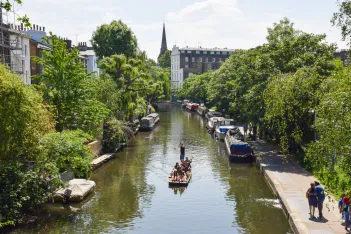CUE topic 3: Public procurement to foster urban greening and circularity

Challenge description
Urban areas face increasing challenges, including biodiversity loss, resource depletion and climate change. Urban development processes contributing to these challenges are complex. Multiple parties are involved in these processes which can take a long time, and where risks and returns are distributed. Public agencies play a crucial role in creating multiple sustainable values, such as urban greening and circularity in these processes. Public procurement, which accounts for a significant share of municipal budgets in Europe and beyond, remains an underutilised tool for driving sustainable urban transitions. Despite their potential, procurement strategies often lack clear circularity criteria, cross-sectoral collaboration, and the capacity to support NBS and resource efficiency. This topic focuses on how public procurement can 1) preserve and enhance biodiversity and mainstream NBS in cities, tackling the adverse effects of climate change and improve ecosystem health, and/or 2) close material loops and advance urban sustainability through circularity. In both aspects, procurement is a pivotal mechanism and tool for achieving green and circular urban transitions.
Scope
Public procurement has vast untapped potential to drive circularity, social sustainability and urban greening in urban development processes. Proposals should explore innovative approaches as to how public procurement can be leveraged strategically across various sectors and resource flows, and authorities enhancing urban greening, improving social equity conditions, reducing waste generation and emissions, and promoting circular practices and climate resilience. Projects shall also focus on procurement policies that promote reuse, recycling and waste, and tackle how a clear definition of circularity in procurement criteria is needed to ensure its effective implementation.
Projects should also focus on building capacity and peer-learning and exchange knowledge bases, that will empower urban authorities, procurement officers, planners, practitioners (e.g. engineers, architects, private sector) and civil society, to lead by example and implement truly transformative procurement strategies. Emphasis is placed on balancing local and resilient supply chains, as well as procurement strategies that establish flexible, resilient networks that balance local sourcing with regional and international supply chain diversification. Regarding, green infrastructure and urban resilience, projects should focus on procurement strategies that consider sustainable landscaping and design that reduces water consumption (promoting drought resistant plants and water circularity strategies), noise and air pollution, and greenhouse gas emissions, and enhances the urban environment’s contribution to public health and wellbeing and climate neutrality. Projects should harness creativity and innovation, embracing distinctiveness by fostering, for instance, local craftsmanship, circular business models, and ‘slow consumption’ trends, reinforcing local and cultural identity while advancing sustainability and climate neutrality goals. Projects should consider the social impact of procurement procedures and how they can promote greater community involvement and commitment, provide support for marginalised groups and aid in generating local employment.
Pilot projects, experimental urban spaces and participatory design approaches should be incorporated into procurement strategies. Research should focus on developing frameworks and tools that demonstrate how procurement policies can drive urban sustainability.
Project proposals submitted under this topic should address one or several of the following issues:
- Prioritising reuse and recycling in procurement: How can public procurement prioritise, for example, construction, materials, design, engineering and/or urban planning, products and services designed for reuse, repair and recycling to reduce waste and conserve resources?
- Fostering local and resilient supply chains: What role can public procurement play in fostering local, resilient supply chains that support circular urban practices and sustainability?
- Encouraging circular innovation in suppliers: What incentives can be implemented to encourage suppliers to innovate and adopt circular urban economy practices, such as using secondary materials and remanufactured goods relating to the built environment?
- Mitigating urbanisation’s effects on biodiversity: What architectural and design practices can help mitigate the adverse effects of urbanisation on biodiversity, and how can procurement processes support these practices?
- Integrating NBS into procurement: What NBS criteria can be incorporated into procurement processes to address urban challenges and mitigate the impact of urbanisation on biodiversity?
- Collaboration for circular economy goals: How can cross-sector collaboration between public authorities, researchers, and creative industries unlock innovative solutions that align procurement strategies with circular economy goals, ensuring systemic impacts across waste streams and material flows in the built environment?
- Social and community benefits: How can procurement for urban greening and circularity benefit diverse social groups, promote greater community involvement, as well as support marginalised groups, and foster local employment generation?
Expected outputs and outcomes
Rather than focusing on isolated technical solutions, projects are expected to approach this topic through systems thinking, place-based and human-driven strategies related to this topic. Project outcomes should be both impact-oriented and process-driven, aiming to be as concrete and user-centred as possible. Projects should clearly define their expected outputs in relation to the chosen question. Expected outputs include, but are not limited to:
- Policy guidelines and recommendations for embedding urban circularity and sustainability in public procurement processes.
- Best practice frameworks and models for integrating lifecycle assessments, nature-based solutions and circular urban economy principles in procurement.
- Toolkits and resources to support capacity building and training for public procurement professionals.
- Case studies including examples of successful circular urban procurement initiatives with measurable and impact-oriented outcomes (e.g. facts and figures).
- Strategies for enhanced urban resilience, and circularity, and reduced waste, improved resource efficiency, and strengthened local supply chains.
- Approaches to enhance biodiversity preservation and increase adoption of NBS to mitigate the effects of urbanisation.
- Recommendations for improved social impact in procurement procedures, greater community involvement, support for marginalised groups, and generation of local employment.
- Strategies to promote stimulation of local urban economies through circular business models and sustainable consumption trends.